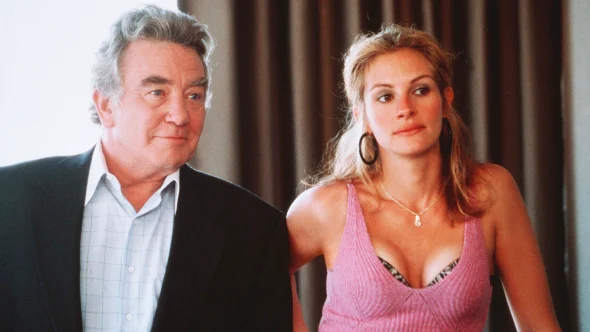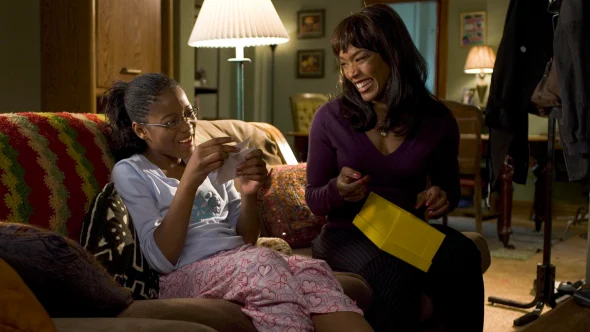
Each year, the Academy Nicholl Fellowships in Screenwriting celebrate up-and-coming international screenwriters with a competition that helps identify and foster their talents. Of the many projects by gifted Nicholl Fellows we’ve been honored to recognize over the years, here are 10 films showcasing writers who have gone on to make a cinematic mark of their own.

Allison Anders, a 1986 Nicholl Fellow, made a splash on the ’90s indie scene with her breakthrough films Mi Vida Loca and Gas Food Lodging. She followed those up with this 1996 look at the world of 1960s pop as seen through the eyes of songwriter Edna Buxton (played by Illeana Douglas) over the course of many years and multiple heartaches.

In 1993, Myron Goble earned a Nicholl Fellowship for this subtle but powerful drama about a mother struggling with drug addiction who relocates to rural Mississippi with her two children and reconnects with her family history. Alfre Woodard starred in the 1998 feature film version, which was also the sole film directed by the legendary Maya Angelou.

A 1986 Nicholl Fellow, Jeffrey Eugenides went on to write the unforgettable novel that served as the basis for this debut directorial feature from Sofia Coppola, who also wrote the screenplay. This dreamlike, tragic look at a summer in an American suburb has since been regarded as a major cinematic and literary work, which Eugenides followed up with the 2003 Pulitzer Prize-winning novel Middlesex.

Three years after he became a Nicholl Fellow in 1996, Ehren Kruger saw his twisty script (about a man who suspects his neighbor of plotting a potential terrorist attack) become a film starring Jeff Bridges and Tim Robbins. Kruger would go on to pen three of the Transformers films as well as The Ring, Scream 3 and Tim Burton’s Dumbo.

A Nicholl Fellow in 1992, Susannah Grant earned an Oscar nomination in 2001 for writing this biographical portrait of the woman who famously beat the odds to hold a major energy corporation accountable for public water contamination. Julia Roberts earned an Academy Award for her performance, and Grant went on to write such films as In Her Shoes and Charlotte’s Web and co-created and wrote the Netflix miniseries Unbelievable.

Doug Atchison adapted his own 2000 Nicholl Fellowship-winning script (which went on to earn a best screenplay win at the NAACP Image Awards) and also directed this 2006 family drama about an 11-year-old young girl’s journey from South Los Angeles to the National Spelling Bee. Incorporating themes of class, racial and gender identity, the film went to great pains to ensure the accuracy of the pivotal contest.

This intense look at adolescent bullying and its aftermath starring Rory Culkin was written and directed by Jacob Aaron Estes, based on the script that made him a 1998 Nicholl Fellow. Since the release of this critically acclaimed film (which ended up with two honors at the Film Independent Spirit Awards), he has written and directed two other features, The Details in 2011 and Don’t Let Go in 2019.

Creighton Rothenberger, a 2002 Nicholl Fellow, has become a recognizable name in modern action after teaming up with Katrin Benedikt to write this high-octane thriller starring Gerard Butler and Morgan Freeman, about a siege on the White House and the presidency itself. The film went on two spawn two sequels, London Has Fallen and Angel Has Fallen.

Michael Werwie became a 2012 Nicholl Fellow with this compelling look at the life and crimes of notorious serial killer Ted Bundy. Seven years later, it became a feature film starring Zac Efron. The Nicholl win was the culmination of 10 years of effort for Werwie, who had 13 scripts under his belt by that point.

A film I absolutely love! Featuring a truly talented cast, Just Mercy was a “must watch” film in 2019, portraying how the lack of social justice in our country is manifested in the many pitfalls of our broken justice system. The fight to identify wrongful convictions, end mass incarceration and excessive punishment, challenge racial and economic injustice, and protect basic human rights for the most vulnerable people in American society is a fight that continues to this day. Just Mercy shows the struggle one man faces in trying to get his life back after a wrongful conviction, along with the heroic work of his lawyer and the team of like-minded colleagues who refuse to give up the fight.


